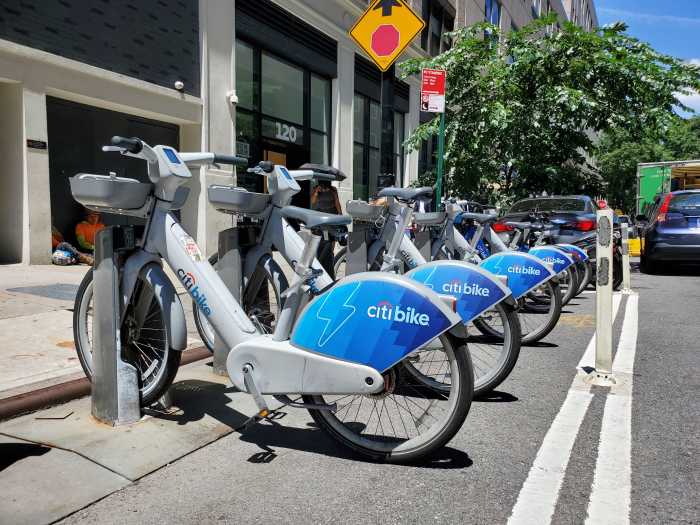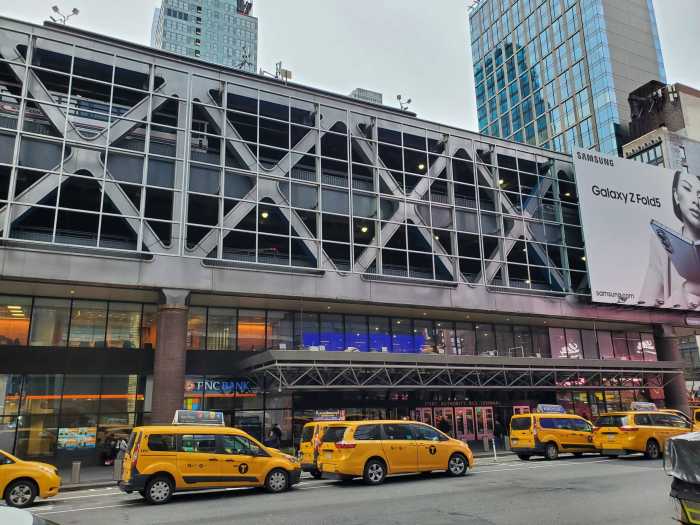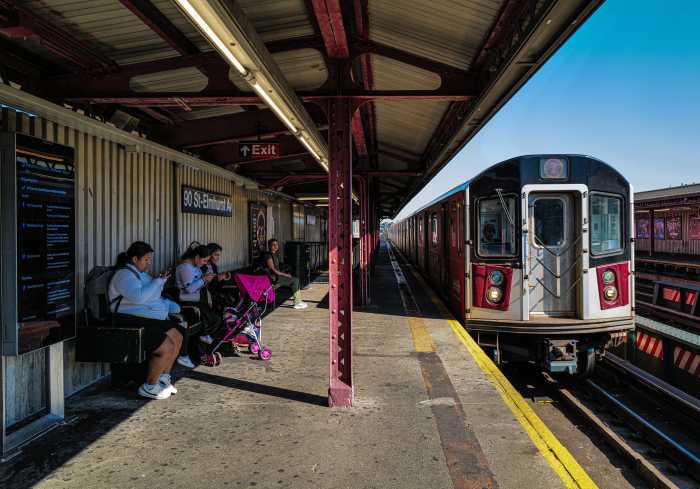
More than a dozen transit and criminal justice advocacy groups are urging New York City Transit President Andy Byford to rethink the MTA’s stepped-up fare-evasion policy.
Byford had announced in December the MTA would double down on its efforts to stop fare beaters, whom the authority estimates were responsible for $215 million in lost revenue in 2018.
As the MTA looks for ways to close a budget gap projected to hit $1 billion by 2021, Byford said the authority has been coordinating with the NYPD to create “fare evasion strike teams” within the Transit Bureau. The MTA is also increasing the number of trained officials it deploys to issue fare-evasion tickets — called “eagle teams” — along bus routes, according to Byford.
Community and transit advocates, however, say the MTA’s policy unfairly punishes people of color for a problem that is actually rooted in decades of mismanagement by the authority and state officials.
“This is an Orwellian ‘broken-windows’ approach from a dated playbook that will needlessly ensnare people of color without addressing the real problem,” the groups said in a letter to Byford, dated Jan. 16. “Successive governors (who run the MTA) and legislators (who shape its budget) are all to blame, along with the federal government, which has long ignored critical infrastructure needs.”
The letter was signed by The Legal Aid Society, Riders Alliance, Association of Legal Aid Attorneys (Local 2325), Immigrant Defense Project, VOCAL-NY, Policing and Social Justice Project at Brooklyn College, Justice Committee, Communities United For Police Reform, Citizen Action of NY, New York County Defender Service, Bronx Freedom Fund and Black Youth Project 100.
In response to the letter on Friday, MTA spokesman Shams Tarek said the authority is working with the NYPD to establish "fair noncriminal solutions to reduce the significant loss of revenue due to fare evasion, starting with prevention and deterrence and ensuring that NYC Transit equipment like emergency gates are operating properly."
"We’re firmly opposed to any disparities or inappropriate targeting in enforcement," Tarek said. "Fare evasion deprives the transit system of hundreds of millions dollars needed to run and improve service, and is unfair to the majority of customers who do pay to ride."
The MTA said about 208,000 subway riders jump the turnstile each day and an additional 384,000 bus riders avoid paying the fare daily. The estimates, released in December, were based on an observational study the MTA conducted at 180 points of entry in the subway system and 140 bus routes per quarter.
There’s also been a concerted effort in the city to pull back on the repercussions associated with fare beating in recent years.
Manhattan District Attorney Cyrus Vance stopped prosecuting most fare beaters in 2017, opting for summonses or desk appearance tickets unless a case demonstrates a risk to public safety. In August, the NYPD said it would no longer arrest turnstile jumpers who have an open warrant for a previous summons, though an alleged fare evader could still be taken into custody for a host of other reasons.
The NYPD has said the changes in policy help keep more transit officers on patrol instead of tying them up in time-consuming arrests.
Criminal justice advocates have expressed concerns of racial disparity in how the NYPD enforces fare evasion. A report put out by Community Service Society of New York in 2017 found that fare evasion arrest rates in Brooklyn corresponded with predominantly poor, black neighborhoods, including Bedford-Stuyvesant and Crown Heights.
In the letter to Byford, the advocacy groups suggested the MTA is using poor communities of color as a scapegoat instead of owning up to its mismanagement and a decline in ridership due to poor service.
“Blaming Black and Latinx New Yorkers in poverty is cynical and wrong,” the letter reads.
Instead, the authority should be focused on more “meaningful ways” to close the budget gap — “approaches that do not perpetuate broken-windows policing and that do not turn our subways into traps for racially and economically marginalized New Yorkers,” the groups said.
The MTA has said fare beating was identified as one of several factors contributing to the authority’s financial crisis and that it never suggested it is the single or largest cause of its funding issues.




































